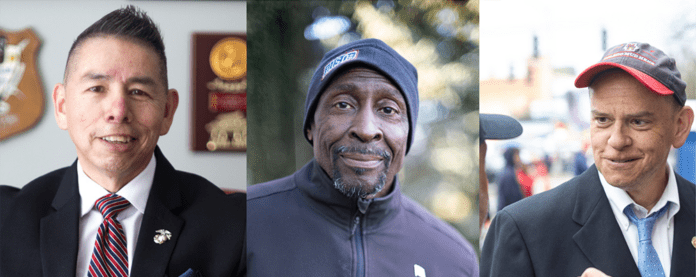This is an introduction to all three mayoral candidates on the City of Toledo primary election ballot: Incumbent Wade Kapszukiewicz, Roberto Torres and Harold Harris.
On May 6, Toledoans will choose the top two candidates, who will then be placed on November general election ballot.
Incumbent Wade Kapszukiewicz
The office of mayor is defined in Toledo as nonpartisan, but Kapszukiewicz, 52, has been affiliated with the Democratic political party in the past.
Goals:
- Improve public safety by reducing crime, with a special focus on reducing homicides
- Provide economic development to Toledo
- Continue building infrastructure in the form of repaired roads
- Invest in housing for the city of Toledo
Proposed changes:
Since Kapszukiewicz is an incumbent, he made it clear most of his work would be focused on continuing the work he has already been doing, but offered a number of proposed continuations for what his third term might look like.
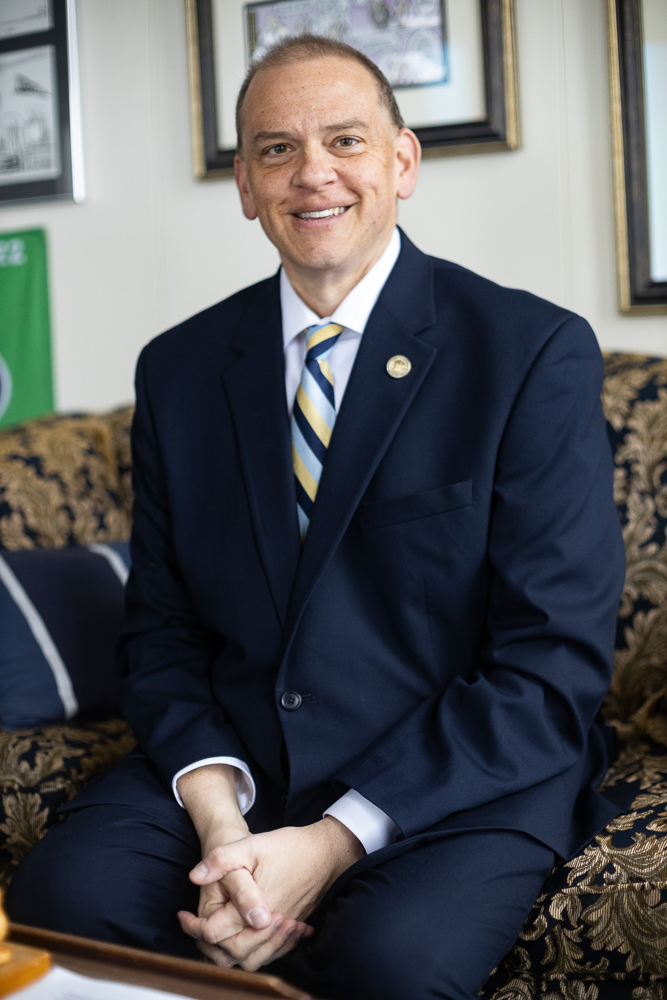
“The first thing we decided to do was to increase the size of the police class that we had budgeted this year,” Kapszukiewicz said.
Growing the police is a common goal the mayor has highlighted in the past, along with declining crime rates in Toledo. It should be noted that the declining rates are coming off of an all-time high during the 2020-21 pandemic, where most American cities experienced large spikes in crime.
Site Selection Magazine placed Toledo as the best mid-size city for economic development, and the city’s increased bond rating increased in 2025 following the submission of Kapszukiewicz’s city budget this year.
Kapszukiewicz raised road levies during his time in office to repair roads, and during his State of the City address, Kapszukiewicz focused on converting vacant commercial spaces downtown into housing.
Experience:
Kapszukiewicz took office as mayor of Toledo in 2018, is still in office, and he is up for reelection for his third consecutive term as mayor. There has not been a third term Toledo mayor since the introduction of its charter in 1916.
In 2024, the Toledo City Charter was amended by ballot initiative, Issue 9, to allow for a third term for mayors of Toledo. Right before the introduction of Toledo’s Charter, Brand Whitlock served four consecutive terms as the mayor of Toledo from 1906 to 1914.
Kapszukiewicz also served as a member of Toledo city council, beginning in 1999, and went on to serve as the Lucas County treasurer before becoming mayor.
In his time as treasurer, Kapszukiewicz founded the Lucas County Land Bank.
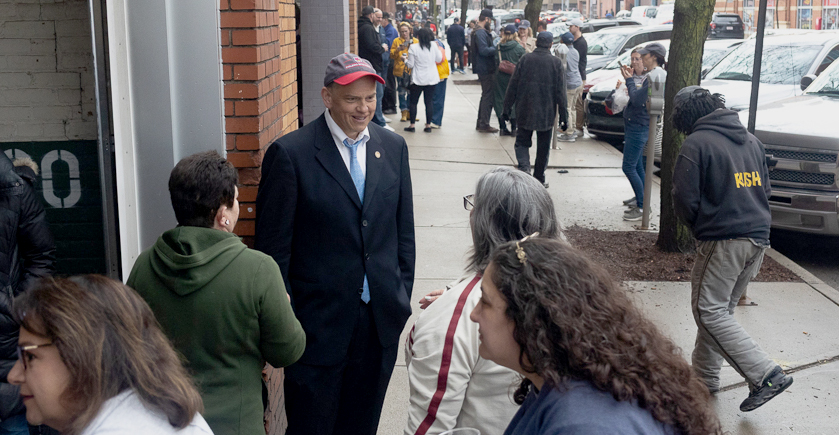
Roberto Torres
The office of mayor is defined in Toledo as nonpartisan, but Torres, 62, announced his candidacy as an Independent candidate.
Goals:
- Live within the means of Toledo’s revenues
- Community Development in the form of empowering local neighborhoods
- Attract new businesses to economically develop downtown
Proposed Changes:
“We need job creation if we’re losing population,” Torres said, and criticized the current mayor for growing the police force as population continues to decline. “What’s the rationale for keeping more police officers when you have less Toledoans?”
Torres worked under previous Toledo mayors Jack Ford and Carty Finkbeiner, and wants to restart the community Block Watches that were active during those mayors’ administrations to reduce crime.
“The more people that we support out in the neighborhoods…the less we have to employ with the city,” he reasoned.
Torres emphasized the need for economic development, stating that “we cannot be a city that’s just run on federal funding.”
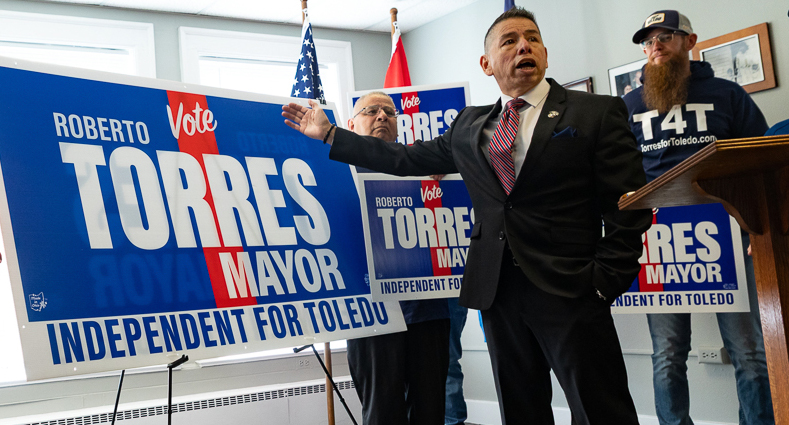
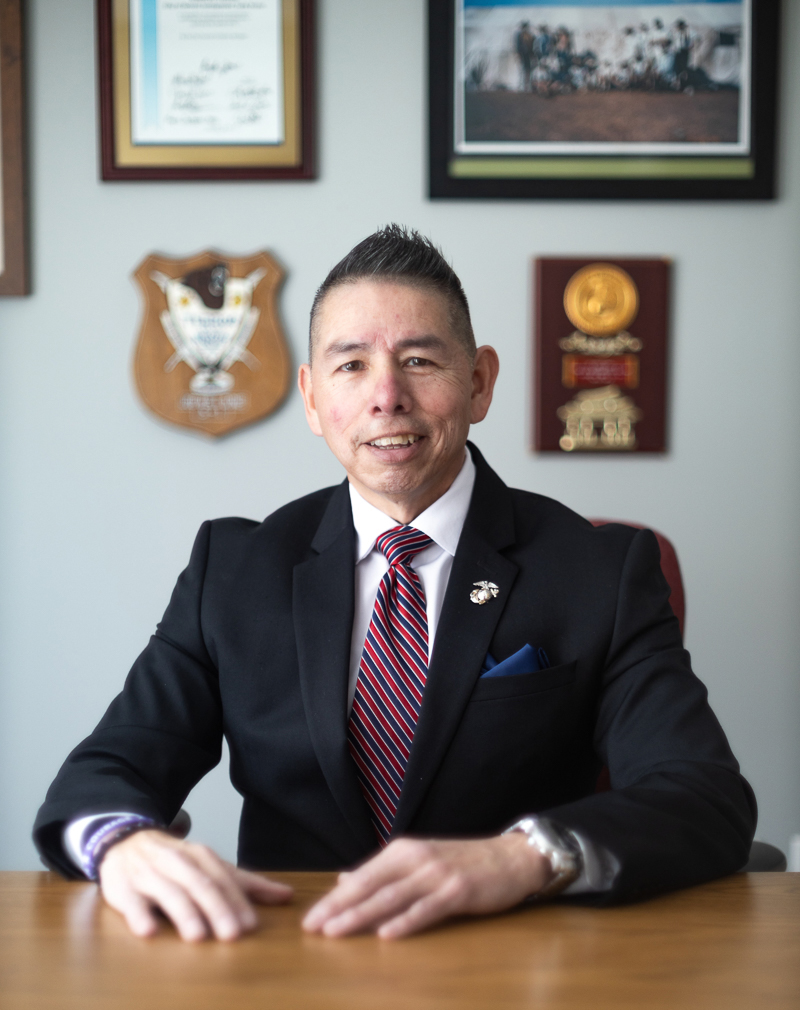
He also talked about the difficulties that may be ahead as the Department Of Government Efficiency (DOGE) continues to cut federal funding.
Massive amounts of federal funding have been procured by the Kapszukiewicz administration through competitive grants and the American Rescue Plan Act funds under the Biden administration. Most recently, grants and funding of this kind have been used to supplement projects like the Wayman D. Palmer YMCA.
“We need to have private investment,” Torres said, and pointed to his experience working with the governments in Detroit, Canton, Ohio and Grand Rapids, Mich., as proof of his ability to provide economic prosperity to cities.
If there is economic development in northwest Ohio, Torres said it generally goes to another municipality in the area, instead of Toledo. Torres blamed a labor agreement that is active within the city as the cause for slowing economic development in Toledo.
“Toledo is ripe for growth,” Torres said, adding, “We have, right now, a policy that’s supported by this administration [Kapszukiewicz’s administration] that prevents development, so it discourages people from coming here. The cost of development here is much higher because of that.
“What I would change is the threshold that qualifies individuals that are impacted by this agreement,” Torres said, and pointed to Detroit and Cleveland as cities with a similar labor agreement with higher thresholds. The criticism of this labor agreement deals with the low threshold affecting nonprofits and small businesses, instead of just affecting larger investors.
Experience:
Torres currently works as the director of the Mayor’s Office of Immigrant Affairs and Economic Inclusion in Detroit, and has worked in this capacity since 2018.
Torres served in the United States Marine Corps as a sergeant and a battalion legal chief.
Torres’ foray into politics began in Toledo in 1996 when he served as the director of the Board of Community Relations for the City of Toledo, then the director of the Toledo Youth Commission; director of the Office of Latino Affairs for the City of Toledo; and a development specialist for economic development for the City of Toledo, ending in 2008.
Venturing outside of northwest Ohio, Torres became the director of economic development, 2008-2012 for the City of Canton, Ohio.
From 2013-2015, he worked as the executive director of the Northwest Ohio Hispanic Chamber of Commerce.
In Grand Rapids, Mich., Torres served as the executive director of the Hispanic Center of Western Michigan from 2015-2018 until taking on his current role in Detroit.
Harold Harris
Harris, 69, announced his candidacy as an Independent, non-committed candidate. He explained the non-committed title he gave himself like this: “I’m not committed to the Republican Party. I’m not committed to the Democratic Party. I’m committed to the people.”
Goals:
- Reduce Toledo crime, specifically shootings and homicides
- Prevent incumbent Mayor Wade Kapszukiewicz from getting a third term as the mayor of Toledo
- Provide basic services to Toledoans in the form of road maintenance, tree removal, etc.
- Create an attentive city government that hears the people’s needs
Proposed Changes:
“The most important one [issue] is gun violence, homicides, shootings,” Harris said, and blamed Kapszukiewicz for a rise in crime.
“30 years ago, you never heard of drive-by shootings, never heard of murders and homicides [in Toledo]. We’re gonna bring those numbers down,” he said, referring to the crime involving deaths in Toledo.
How Harris said he would change Toledo for the better revolved mainly around his own ability and competency.
When asked how Harris would bring down crime in Toledo, he responded, “I think it’s pretty simple. I’m [going to] meet with the police chief, okay? I’m gonna give him my direction. He works directly for me, okay? And we’re gonna take care of it.”
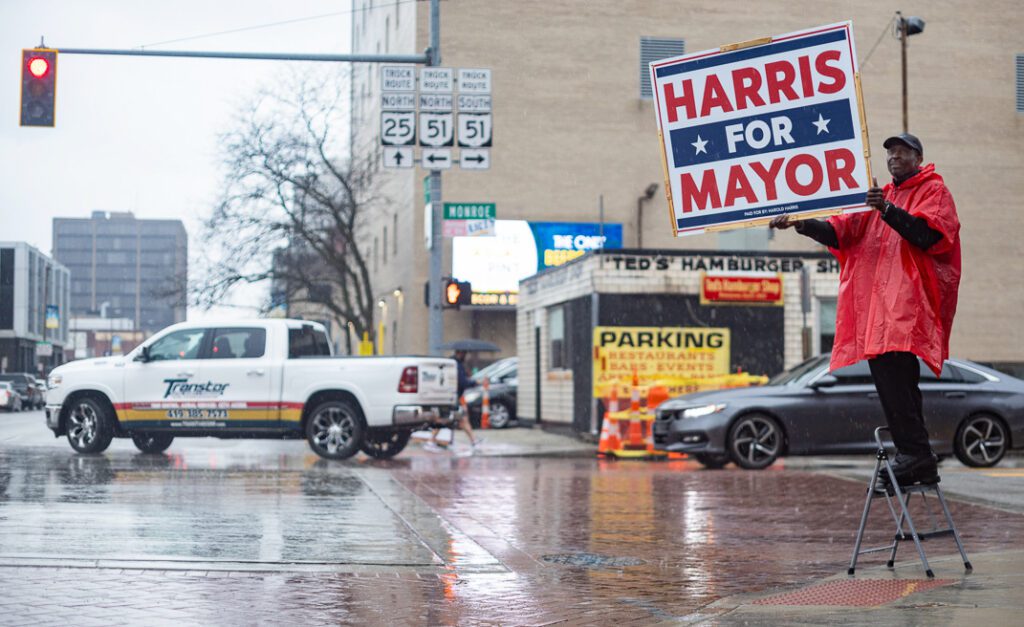
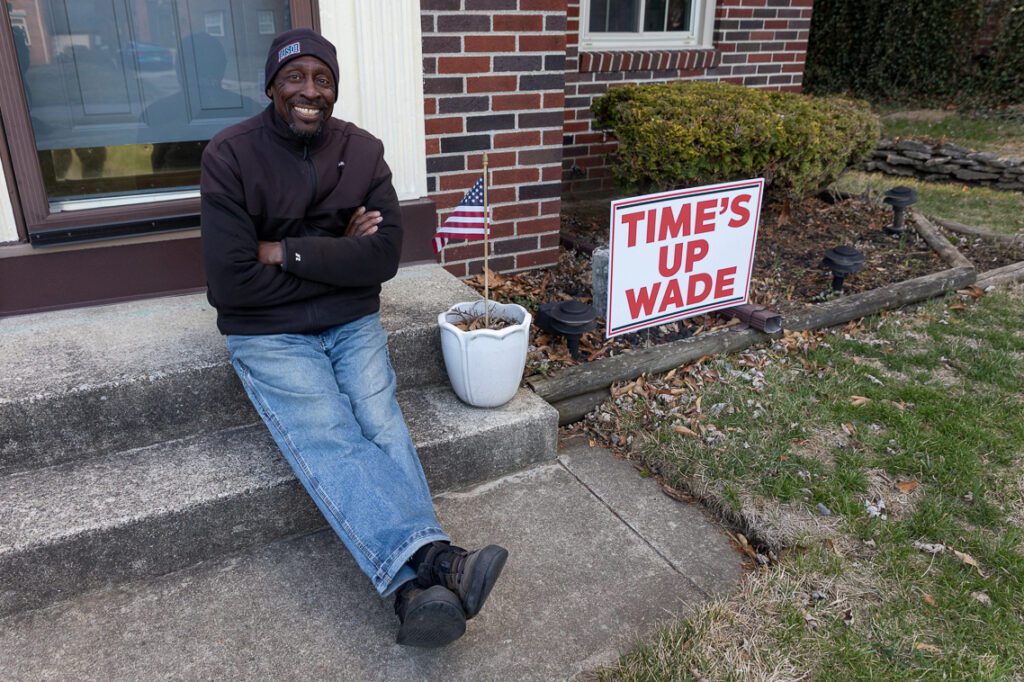
Face-to-face command ability, authenticity and military experience provided the bulk of Harris’ explanation on how he would run the city, reduce crime and fix up Toledo’s neighborhoods.
“I’m an action person. I’m not going to burn time talking about an issue,” he said, and clarified that he didn’t have much on his mind concerning legislation or policy. “My thing is, let’s keep it simple.”
Harris said he was interested in giving power back to the people, and felt Kapszukiewicz was purposefully ignoring the needs of everyday Toledoans.
“The guy on the 22nd floor has brought me out of retirement,” Harris said. “But that’s okay, because I’m fighting for the people; it’s all about the people, and, hopefully, I will do a good job for them.”
Because of his stated frustration with Kapszukiewicz, Harris refused to say Kapszukiewicz’s name during the interview. Instead, Harris alluded to Toledo’s current mayor as “the guy at 1 Government Center” or “the guy on the 22nd floor of 1 Government Center.”
Being among the people and listening to their needs was an utmost priority to Harris, and he sought to reconnect people with their government through the reinstatement of the Block Watch program.
“They’re [the Toledo city government is] not hearing these people cry out,” Harris said.
Experience:
Harris achieved the E-6 rank of Technical Sergeant in the United States Air Force.
He served in the Air Force for 20 years from the Vietnam War into the Gulf War era.
He is a disabled veteran, a combat veteran and Harris believes his grass roots organizing over the past six years is good preparation for Mayor.
“I’ve pushed everything from issue nine to issue 21 to voter registration, to voting, to police reform, you name it,” he said.


